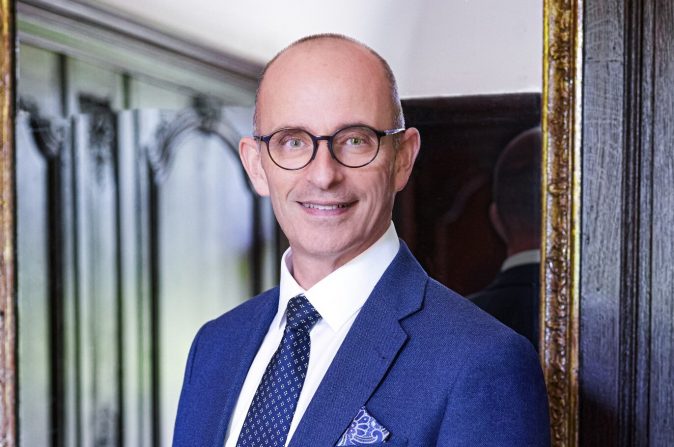Education / France-USA-Today
EDHEC Business School: Advancing thought leadership in sustainable business
A global leader in business education, EDHEC combines academic excellence with real-world impact to shape responsible leaders for the future economy.

Emmanuel Métais, Dean of EDHEC
As global economies navigate climate uncertainty, technological disruption, and shifting geopolitical dynamics, EDHEC Business School is emerging as a forward-looking institution shaping the future of business education. With a stronghold in France and a growing international footprint through academic and industry partnerships, EDHEC is carving a distinct identity among Europe’s leading business schools by combining rigorous research, global collaboration, and a deep commitment to sustainability.
“Business is one of the most powerful tools we have to address global challenges,” says Emmanuel Métais, Dean of EDHEC. “We believe business schools must lead – not only by educating, but by creating tools and research that help businesses become part of the solution.”
“We believe business schools must lead — not only by educating, but by creating tools that help businesses become part of the solution.”
Founded over 120 years ago by business leaders committed to responsible management, EDHEC now serves more than 10,000 students from 120 countries. Unlike peer institutions, EDHEC is a registered non-profit and re invests nearly all its revenue into research, teaching, and strategic initiatives. That independence helps it remain agile and responsive in areas where business, technology, and policy intersect.
EDHEC has campuses in Lille, Nice and Paris, as well as research campuses in London and Singapore. The International BBA and all master’s programs are taught in English. Although French isn’t required, students are encouraged to immerse themselves in French and European culture, which helps them integrate into international firms.
While EDHEC is well known in France, it is attracting growing interest from international academic partners and students, particularly in North America and Asia. Its model for global engagement favors depth over expansion. Instead of opening student campuses abroad, EDHEC builds long-term collaborations with top institutions such as UC Berkeley’s Haas School of Business and Korea’s Sungkyunkwan University. A standout example is a joint Master’s program on global economic transformation and technology that allows students to study in Paris, Seoul, and Silicon Valley – gaining exposure to distinct business ecosystems while benefiting from the expertise of three prestigious schools. EDHEC also maintains active ties with UCLA and UC Berkeley’s SkyDeck startup accelerator.
American students are increasingly drawn to these global opportunities. In EDHEC’s under graduate program, Americans now make up the second-largest group of international students. In Fall 2026, US students will have a new opportunity to study in Europe as part of a double-degree program between EDHEC and King’s College London.
“We’re creating usable, science-based models for re al-world decision-making.”
EDHEC is a Grande École, like HEC Paris and INSEAD, and its reputation is growing, particularly among those seeking an education that combines academic excellence with practical experience. EDHEC’s goal is to give students the confidence they need to lead business into a new era of societal and tech innovation. “Today’s students want to change the world – not just talk about it,” Métais says. “We attract people who care about impact but also know that impact must be scalable and financially sound.”
A cornerstone of EDHEC’s strategic roadmap is its $88 million investment in climate finance – part of a broader $316 million institutional plan. Building on its reputation in financial research and asset management, EDHEC is applying the same rigor to understanding climate-related financial risks. Its research teams, under the leadership of the EDHEC Climate Institute, are developing climate data tools that investors can use to assess the vulnerability of infrastructure to environmental threats, such as wildfires and flooding.
“Our goal is to make sustainability measurable – as measurable as a company’s financial returns,” Métais explains. “We’re not just publishing papers; we’re creating usable, science-based models for real-world decision-making.”
EDHEC-developed financial indices are utilized by pension funds worldwide, and several of its research spin-offs have become successful ventures, including one that the Singapore Stock Exchange acquired for $235 million. EDHEC’s sustainability focus ex tends beyond research. “We’re integrating climate science, bio diversity, and diversity into our core curriculum,” Métais says. “Our students aren’t just learning about business – they’re being trained to lead systemic change.”
“Our students aren’t just learning about business – they’re being trained to lead systemic change.”
EDHEC’s concept of a “net positive” business is at the heart of this approach. Rather than simply reducing harm, EDHEC’s goal, in teaching, research, and executive learning, is to encourage companies to actively contribute to environmental and social well-being. M2I, an organic pesticide company founded by an EDHEC alumnus, is a good example of the net-positive trend in business, where companies aim to be both regenerative and commercially viable. At a time of massive geopolitical upheaval and uncertainty, EDHEC’s blend of data-driven research, values-based education, and global orientation positions it as a meaningful contributor to the global conversation around sustainable and responsible business.
